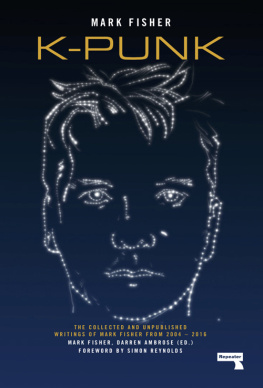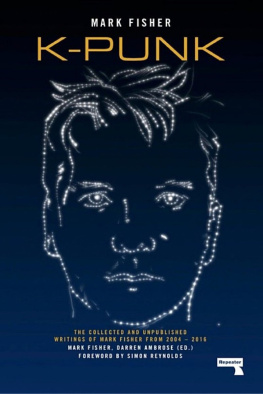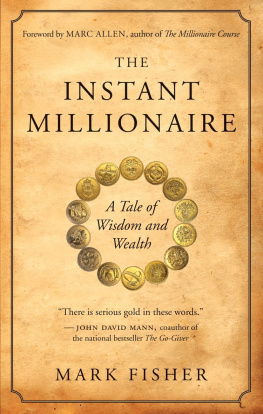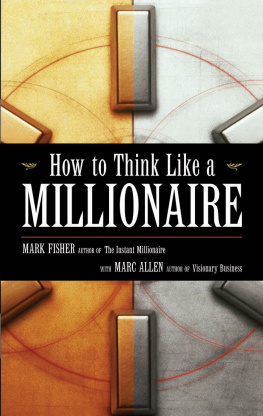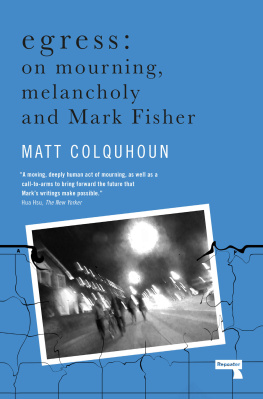Mark Fisher - Postcapitalist Desire
Here you can read online Mark Fisher - Postcapitalist Desire full text of the book (entire story) in english for free. Download pdf and epub, get meaning, cover and reviews about this ebook. year: 2020, publisher: Repeater Books, genre: Religion. Description of the work, (preface) as well as reviews are available. Best literature library LitArk.com created for fans of good reading and offers a wide selection of genres:
Romance novel
Science fiction
Adventure
Detective
Science
History
Home and family
Prose
Art
Politics
Computer
Non-fiction
Religion
Business
Children
Humor
Choose a favorite category and find really read worthwhile books. Enjoy immersion in the world of imagination, feel the emotions of the characters or learn something new for yourself, make an fascinating discovery.
- Book:Postcapitalist Desire
- Author:
- Publisher:Repeater Books
- Genre:
- Year:2020
- Rating:5 / 5
- Favourites:Add to favourites
- Your mark:
- 100
- 1
- 2
- 3
- 4
- 5
Postcapitalist Desire: summary, description and annotation
We offer to read an annotation, description, summary or preface (depends on what the author of the book "Postcapitalist Desire" wrote himself). If you haven't found the necessary information about the book — write in the comments, we will try to find it.
Postcapitalist Desire — read online for free the complete book (whole text) full work
Below is the text of the book, divided by pages. System saving the place of the last page read, allows you to conveniently read the book "Postcapitalist Desire" online for free, without having to search again every time where you left off. Put a bookmark, and you can go to the page where you finished reading at any time.
Font size:
Interval:
Bookmark:



Published by Repeater Books
An imprint of Watkins Media Ltd
Unit 11 Shepperton House
88-93 Shepperton Road
London
N1 3DF
UK
www.repeaterbooks.com
A Repeater Books ebook original 2020
Copyright Mark Fisher 2020
Introduction copyright Matt Colquhoun 2020
ISBN: 9781913462376
All rights reserved. No part of this publication may be reproduced, stored in a retrieval system, or transmitted, in any form or by any means, electronic, mechanical, photocopying, recording or otherwise, without the prior permission of the publishers.
This book is sold subject to the condition that it shall not, by way of trade or otherwise, be lent, re-sold, hired out or otherwise circulated without the publishers prior consent in any form of binding or cover other than that in which it is published and without a similar condition including this condition being imposed on the subsequent purchaser.
CONTENTS
Introduction:
No More Miserable Monday Mornings
Matt Colquhoun
Atrocity Exhibition
In the introduction to his unfinished book, Acid Communism, the late Mark Fisher famous for his love of post-punk, jungle, and a range of contemporary pop-experimentalists surprised friends and fans alike by writing positively about the counterculture of the 1960s and 1970s.
Fisher had previously been scathing about the legacy of the counterculture. He had once declared on his k-punk blog, for instance, that hippie was fundamentally a middle class male phenomenon defined by a hedonic infantilism.
As far as Fisher was concerned, to self-induce a stoned stupor, chemically or otherwise, was to do capitalisms work for it, as if driven by a Freudian repetition compulsion to artificially implement capitalisms cognitive capture from within, demonstrating the human organisms marked tendency to seek out and identify itself with parasites that debilitate but never quite destroy it.
Fisher furnished his alternative with the seventeenth-century philosophy of Baruch Spinoza, where this psychedelic reason lies in wait, ready to be uncovered. Spinoza is the prince of philosophers; really, the only one you need, he writes. Fisher continues:
Vernacular psychology has it that emotions are irreducibly mysterious, too fuzzy and indistinct to analyse beyond a certain point. Spinoza, on the other hand, maintains that happiness is a matter of emotional engineering: a precise science which can be learned and practiced In tune with popular wisdom, Spinoza is clear that what brings wellbeing to one entity will [be] poison to another. The first and most overriding drive of any entity, Spinoza says, is its will to persist in its own being. When an entity starts to act against its own best interests, to destroy itself as, sadly, Spinoza observes, humans are wont to do it has been taken over by external forces. To be free and happy entails exorcising these invaders and acting in accordance with reason.
In this sense, Fishers blogospheric rallying cry was to argue that we already possess everything that we need to escape the confines of capitalist realism that ideological straitjacket that keeps us compliant and unimaginative; the external invader constricting our minds, bodies, and the self-realisation of our being today. Drugs like acid or ecstasy might loosen up the mind to a certain degree, but they neglect the other, more lucidly existential parts of human subjectivity (our capacity to reason, our political agency), leaving them to rot and atrophy. In this sense, the problem with drugs, Fisher argues, is that they are like an escape kit without an instruction manual. As fun as they may be, in the grand scheme of things, and as the old song goes, the drugs dont work, they just make things worse
However, when the hippies rose from their supine hedono-haze to assume power, Fisher continues addressing the aesthetic ubiquity and cultural power of the counterculture that has lingered long past the movements political usefulness they brought their contempt for sensuality with them. Culturally speaking, the shadow of this moment is long. With the new sensuality of post-punk eventually defeated, Fisher connects the virulence of this anti-sensual sensibility to the cultural yuppies of the 1990s, epitomised by the Young British Artists, alongside the adjacent rise to power of Britpops laddishness.
It is hard to deny the prevalence of the countercultures negative trajectory when framed in this way. Whilst at first it seems like there is little more than a similar predilection for round teashade sunglasses connecting the Beatles John Lennon to Oasiss Liam Gallagher, for instance, in fact the countercultures cul-de-sac of passivity or, as Fisher puts it, its hey man, its all about the mind! sensibility was as much the driving force behind the bleary, blurry, beery, leery, lairy vibe of Britpop hedonism as it was for the acid tests of the bohemian unwashed.
This is apparent as soon as we cast an eye over the acid mundanity captured in two songs the Beatles Lucy in the Sky with Diamonds (1967) and Oasiss Champagne Supernova (1995). Thirty years apart, from two (politically) distinct worlds, the bond of a psychedelic melancholia nonetheless binds them together. The same hauntological and melancholic transference can be seen in John Lennon and Yoko Onos 1969 performative sit-in, Bed-Ins for Peace, the rotten husk of which re-emerged from the funereal white cube of the Tate Gallery in the form of Tracey Emins 1998 work My Bed.
This superficial regurgitation of Sixties concerns under the melancholy of Nineties capitalism resembles the fin de sicle decadence of the previous century a nightmarish and fumbling autopsy of a long-dead dream, albeit devoid of any of its proto-modernist self-awareness. Britpop, in this sense, was truly an atrocity exhibition, curating a fashion-show procession of neoliberal spectres and zombies, now haunting and stalking the psyche.
The Abstract Ecstasy of Psychedelic Reason
It is fair to say that nothing from this period of Fishers blogging days a particularly productive August in 2004 constitutes putting it lightly; his critiques are barbed and often wholly negative. So how did this Mark Fisher transform into the Fisher of Acid Communism? Despite this unflattering appraisal from the mid-2000s, it seemed that Fisher later softened his opinion on the counterculture as a whole. And yet, despite appearances, this transformation was not so extreme. Fisher instead took it upon himself to move beyond his barbed critiques and work towards the construction of a positive political project a project that still had his Spinozist psychedelic reason at its heart.
It seems that, in the process of constructing such a project, Fisher had begun to newly appreciate the political potentials of the countercultures best cultural and aesthetic offerings at least in their original socio-political context. These potentials were not to be found in the surrealist abstractions of a bourgeois Pink Floyd concert, repurposed nostalgically and apolitically for today. Instead, they were to be found explicitly in the cultural artefacts that built new bridges between class consciousness and psychedelic consciousness, between class consciousness and group consciousness, but which were smothered or abandoned before their time.
Next pageFont size:
Interval:
Bookmark:
Similar books «Postcapitalist Desire»
Look at similar books to Postcapitalist Desire. We have selected literature similar in name and meaning in the hope of providing readers with more options to find new, interesting, not yet read works.
Discussion, reviews of the book Postcapitalist Desire and just readers' own opinions. Leave your comments, write what you think about the work, its meaning or the main characters. Specify what exactly you liked and what you didn't like, and why you think so.


